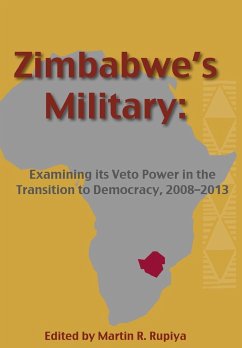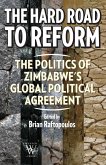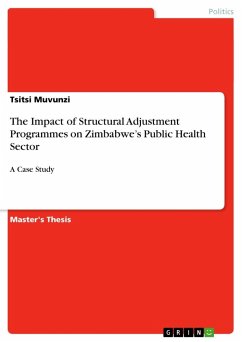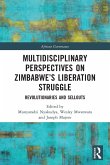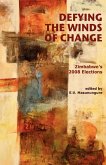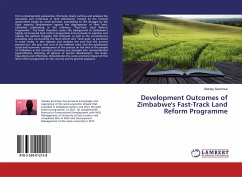Political transition and democratisation challenges have been noted in African countries including Angola, Burkina Faso, Kenya, Mali, and the Democratic Republic of the Congo, resulting in the African Union (AU) intervening on behalf of citizens, using tried-and-tested mechanisms of imposing a power-sharing agreement to preside over a transitional period, during which there are key changes to the constitution and the political conduct of the incumbency, and partisan institutions are weaned from seeking to perpetuate the status quo. This book focuses on Zimbabwe's military and its perceived veto power in the transition to democratisation from 2008 until 2013. The objective was to analyse, monitor and comment on the unique democratic transformational challenges faced by Zimbabwe's Government of National Unity. One of the book's key findings is that every time partisan forces carry out an operation in the name of a political party, there is a direct correlation in which the same loses its national character. This is the context of the challenge facing Zimbabwean forces when used for partisan gain and why the Southern African Development Community (SADC), in its last communique in Maputo on 15 June 2013, sought to compel a written undertaking from the generals that they would desist from playing a direct role in the politics of the country. The AU had earlier expressed its deep regret when faced with the results of serious human rights abuses that were committed with impunity.
Hinweis: Dieser Artikel kann nur an eine deutsche Lieferadresse ausgeliefert werden.
Hinweis: Dieser Artikel kann nur an eine deutsche Lieferadresse ausgeliefert werden.

